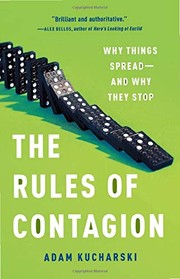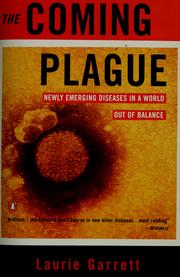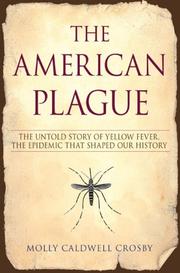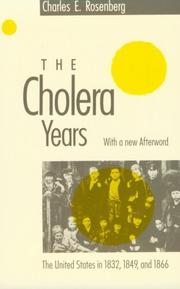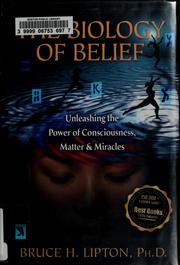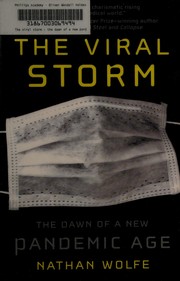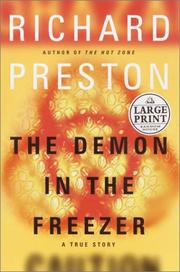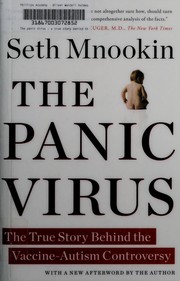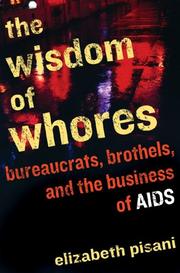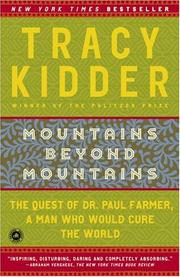Are you fascinated by the science of epidemiology and eager to dive deeper into the subject? Look no further! We’ve compiled a list of the 20 best books on epidemiology that will satisfy your thirst for knowledge and provide valuable insights into the field. Whether you’re a student, researcher, or simply curious about infectious diseases and public health, these books are sure to educate and inspire. Let’s explore the fascinating world of epidemiology through these insightful reads!
Contents
- 1 20 Best Books About Epidemiology
- 2 The Rules of Contagion: Why Things Spread – and Why They Stop
- 3 Spillover: Animal Infections and the Next Human Pandemic
- 4 The Hot Zone: The Terrifying True Story of the Origins of the Ebola Virus
- 5 The Great Influenza: The Story of the Deadliest Pandemic in History
- 6 Pandemic: Tracking Contagions, from Cholera to Ebola and Beyond
- 7 The Coming Plague: Newly Emerging Diseases in a World Out of Balance
- 8 The Fever: How Malaria Has Ruled Humankind for 500,000 Years
- 9 The American Plague: The Untold Story of Yellow Fever, the Epidemic That Shaped Our History
- 10 The End of Epidemics: The Looming Threat to Humanity and How to Stop It
- 11 The Cholera Years: The United States in 1832, 1849, and 1866
- 12 The Biology of Belief: Unleashing the Power of Consciousness, Matter & Miracles
- 13 The Pandemic Century: One Hundred Years of Panic, Hysteria, and Hubris
- 14 The Viral Storm: The Dawn of a New Pandemic Age
- 15 The Demon in the Freezer: A True Story
- 16 The Malaria Capers: Tales of Parasites and People
- 17 The Emperor of All Maladies: A Biography of Cancer
- 18 The Panic Virus: A True Story of Medicine, Science, and Fear
- 19 The Wisdom of Whores: Bureaucrats, Brothels, and the Business of AIDS
- 20 The Immortal Life of Henrietta Lacks
- 21 Mountains Beyond Mountains: The Quest of Dr. Paul Farmer, a Man Who Would Cure the World
- 22 Conclusion
- 23
- 24 Books about Children: 2024 Updated Guide to Essential Reading
- 25 Books about Dicipline: 2024's Best Titles
- 26 20 Soldiers Best Books to Read – The 2024 Edition
20 Best Books About Epidemiology
The Rules of Contagion: Why Things Spread – and Why They Stop
by Adam Kucharski
The Rules of Contagion: Why Things Spread – and Why They Stop by Adam Kucharski is a fascinating book on epidemiology that explores the science behind how things spread, whether it’s a virus, a rumor, or a financial crisis. Kucharski delves into the mathematical and social principles that govern contagion, offering insights into the factors that contribute to the rapid spread of phenomena and the mechanisms that can halt their progression. Through engaging storytelling and real-world examples, he uncovers the patterns and dynamics that underlie contagious processes, shedding light on how we can better understand and manage the spread of various phenomena. Whether you’re interested in public health, social networks, or even stock market fluctuations, this epidemiology book offers a thought-provoking exploration of the universal principles that govern contagion.
Spillover: Animal Infections and the Next Human Pandemic
by David Quammen
Spillover: Animal Infections and the Next Human Pandemic by David Quammen is a gripping exploration of the interconnectedness of human and animal health. This book on epidemiology delves into the phenomenon of zoonoses, diseases that jump from animals to humans, and the potential for these infections to cause widespread pandemics. Quammen takes readers on a fascinating journey through the world of viruses and the ways in which they can cross species barriers, examining compelling case studies such as Ebola, SARS, and HIV. With engaging storytelling and in-depth research, Spillover sheds light on the urgent need for understanding and monitoring emerging infectious diseases. This book about epidemiology is a must-read for anyone interested in the intricate relationship between humans and the animal kingdom, and the critical role of epidemiologists in safeguarding public health.
The Hot Zone: The Terrifying True Story of the Origins of the Ebola Virus
by Richard Preston
The Hot Zone by Richard Preston is a gripping book on epidemiology that delves into the origins of the Ebola virus. Set in the 1980s, the book follows the true story of a deadly outbreak in a research facility in Virginia and the efforts to contain the virus. With a mix of scientific detail and dramatic storytelling, Preston explores the terrifying potential of viral outbreaks and the bravery of the scientists and medical professionals who work to prevent them. The book offers a chilling look at the potential consequences of a book about epidemiology and the dangers of emerging infectious diseases. If you’re interested in a heart-pounding non-fiction read that explores the world of viruses and infectious diseases, The Hot Zone is a must-read epidemiology book.
The Great Influenza: The Story of the Deadliest Pandemic in History
by John M. Barry
The Great Influenza: The Story of the Deadliest Pandemic in History by John M. Barry is a captivating book on epidemiology that delves into the devastating 1918 influenza pandemic. Barry provides a comprehensive account of the outbreak, exploring the scientific, political, and social aspects of the crisis. Through meticulous research and compelling storytelling, he offers a vivid portrayal of the medical community’s response and the impact on society at large. The book takes readers on a journey through the history of epidemiology, shedding light on the challenges faced by scientists and the lessons learned from this catastrophic event. With a blend of historical narrative and scientific analysis, The Great Influenza is a poignant and enlightening book about epidemiology that offers valuable insights into the study of infectious diseases and their impact on human civilization.
Pandemic: Tracking Contagions, from Cholera to Ebola and Beyond
by Sonia Shah
Pandemic: Tracking Contagions, from Cholera to Ebola and Beyond by Sonia Shah is a captivating exploration of the history and impact of infectious diseases. This compelling book on epidemiology delves into the factors that drive the spread of pandemics, from urbanization and global travel to climate change and human behavior. Shah skillfully weaves together scientific research, historical accounts, and personal anecdotes to shed light on the complex dynamics of contagions and their far-reaching consequences. With a keen focus on the interconnectedness of our world, this epidemiology book offers a thought-provoking analysis of how diseases like cholera, tuberculosis, and Ebola have shaped human societies and continue to pose threats in the modern era. Pandemic is a must-read for anyone interested in understanding the intricacies of infectious diseases and the urgent need for global cooperation in combating them.
The Coming Plague: Newly Emerging Diseases in a World Out of Balance
by Laurie Garrett
The Coming Plague by Laurie Garrett is a groundbreaking book on epidemiology that explores the rise of newly emerging diseases in a world that is increasingly out of balance. Through extensive research and compelling storytelling, Garrett delves into the complex factors contributing to the spread of infectious diseases, from globalization and climate change to the misuse of antibiotics and the destruction of natural habitats. This eye-opening book about epidemiology sheds light on the interconnectedness of human, animal, and environmental health, and the urgent need for a holistic approach to disease prevention and control. With its vivid descriptions and thought-provoking analysis, The Coming Plague is a must-read for anyone interested in understanding the challenges and complexities of global health in the modern world.
The Fever: How Malaria Has Ruled Humankind for 500,000 Years
by Sonia Shah
The Fever: How Malaria Has Ruled Humankind for 500,000 Years by Sonia Shah is a captivating book on epidemiology that delves into the history and impact of malaria on human civilization. Shah skillfully weaves together scientific research, historical accounts, and personal narratives to explore how this ancient disease has shaped the course of human history for millennia. She also provides a compelling analysis of the ongoing global battle against malaria, shedding light on the complex social, political, and environmental factors that contribute to its persistence. This thought-provoking epidemiology book offers a comprehensive and engaging look at the impact of one of the world’s most persistent and deadly diseases, making it a must-read for anyone interested in the intersection of health, history, and society.
The American Plague: The Untold Story of Yellow Fever, the Epidemic That Shaped Our History
by Molly Caldwell Crosby
The American Plague: The Untold Story of Yellow Fever, the Epidemic That Shaped Our History by Molly Caldwell Crosby is a gripping book about epidemiology. Crosby delves into the terrifying and deadly impact of yellow fever on American history, exploring how the disease shaped the nation’s development and influenced major events. Through vivid storytelling and meticulous research, she brings to life the devastating outbreaks and the tireless efforts of scientists and doctors to understand and combat the disease. This epidemiology book provides a fascinating look at the intersection of science, medicine, and history, offering insights into the resilience of communities and the advancements in public health that emerged from the crisis. Crosby’s narrative is both informative and compelling, making The American Plague a must-read for anyone interested in the intersection of health and history.
The End of Epidemics: The Looming Threat to Humanity and How to Stop It
by Jonathan D. Quick
The End of Epidemics: The Looming Threat to Humanity and How to Stop It by Jonathan D. Quick is a compelling book on epidemiology that explores the potential risks posed by global pandemics and offers practical solutions to prevent and contain them. Quick, a renowned public health expert, delves into the history of pandemics, analyzes the factors contributing to their spread, and provides a roadmap for averting future catastrophic outbreaks. Through engaging storytelling and expert analysis, the book sheds light on the urgency of addressing the looming threat of infectious diseases and emphasizes the crucial role of global cooperation in safeguarding public health. This insightful book about epidemiology is essential reading for anyone concerned about the current and future impact of infectious diseases on humanity.
The Cholera Years: The United States in 1832, 1849, and 1866
by Charles E. Rosenberg
The Cholera Years by Charles E. Rosenberg is a captivating exploration of the impact of cholera epidemics on the United States in 1832, 1849, and 1866. This compelling book on epidemiology examines the social, political, and medical responses to the outbreaks, shedding light on the ways in which the disease shaped American society during the 19th century. Rosenberg skillfully weaves together historical accounts, medical theories, and personal narratives to provide a comprehensive understanding of the devastating effects of cholera and the efforts to combat it. Through vivid storytelling and meticulous research, the author paints a vivid picture of the challenges and triumphs faced by communities and healthcare professionals during these tumultuous years. The Cholera Years is an essential read for anyone interested in the history of public health and the resilience of communities in the face of epidemic crises.
The Biology of Belief: Unleashing the Power of Consciousness, Matter & Miracles
by Bruce H. Lipton
The Biology of Belief: Unleashing the Power of Consciousness, Matter & Miracles by Bruce H. Lipton is a groundbreaking book that challenges the traditional view of biology and genetics. Lipton, a cell biologist, introduces the concept of epigenetics, which explores how our beliefs and thoughts can influence our biology at a cellular level. This eye-opening book delves into the relationship between mind and matter, and how our perceptions can impact our health and well-being. Lipton’s engaging writing style and revolutionary ideas make this book a must-read for anyone interested in the connection between consciousness and biology. The Biology of Belief offers a unique perspective on the power of the mind and its potential to create miraculous changes in our lives.
The Pandemic Century: One Hundred Years of Panic, Hysteria, and Hubris
by Mark Honigsbaum
The Pandemic Century by Mark Honigsbaum is a captivating epidemiology book that delves into a century’s worth of global pandemics. Honigsbaum expertly weaves together historical accounts, personal stories, and scientific research to explore the recurring patterns of panic, hysteria, and hubris that have characterized pandemics throughout history. From the Spanish flu of 1918 to the recent outbreaks of Ebola and Zika, the book offers a compelling look at how human behavior and societal factors have influenced the spread and containment of infectious diseases. Honigsbaum’s engaging narrative and in-depth analysis make this book about epidemiology a must-read for anyone interested in understanding the complex interplay between pathogens, public health, and human society.
The Viral Storm: The Dawn of a New Pandemic Age
by Nathan Wolfe
The Viral Storm: The Dawn of a New Pandemic Age by Nathan Wolfe is a captivating book on epidemiology that explores the intricate world of viruses and the potential threats they pose to humanity. Through engaging storytelling and expert insights, Wolfe takes readers on a journey through the history of pandemics, the science of viral evolution, and the looming risks of future outbreaks. Drawing from his own experiences as a virus hunter, Wolfe provides a compelling look at the interconnectedness of the modern world and the ways in which viruses can rapidly spread across borders. This epidemiology book offers a timely and thought-provoking examination of the ongoing battle between humans and viruses, shedding light on the crucial role of scientific research and global cooperation in preventing and managing future pandemics.
The Demon in the Freezer: A True Story
by Richard Preston
The Demon in the Freezer is a gripping non-fiction book on epidemiology that delves into the world of biological weapons and the potential threat of smallpox. Richard Preston, the author, explores the history of smallpox, the eradication efforts, and the chilling possibility of the virus being used as a weapon of bioterrorism. The book weaves together personal stories of scientists and officials who are at the forefront of battling this deadly virus, providing a thrilling and informative narrative. With its detailed accounts of the science and politics surrounding smallpox, this epidemiology book offers a captivating look at the potential dangers and the measures being taken to prevent a catastrophic outbreak. The Demon in the Freezer is a must-read for anyone interested in public health, infectious diseases, and the ongoing battle against bioterrorism.
The Malaria Capers: Tales of Parasites and People
by Robert S. Desowitz
The Malaria Capers: Tales of Parasites and People, authored by Robert S. Desowitz, is a captivating epidemiology book that takes readers on a fascinating journey through the world of parasites and the individuals who study them. Desowitz’s engaging storytelling and in-depth research provide a compelling look at the history and impact of malaria on human society, exploring the complex relationship between parasites and their hosts. Through a series of captivating tales, the book sheds light on the scientific, social, and cultural aspects of epidemiology, offering a unique perspective on the intricate interplay between parasites and people. With its blend of scientific insight and narrative flair, The Malaria Capers is a must-read for anyone interested in the intersection of health, disease, and human behavior.
The Emperor of All Maladies: A Biography of Cancer
by Siddhartha Mukherjee
The Emperor of All Maladies: A Biography of Cancer by Siddhartha Mukherjee is a groundbreaking book on epidemiology that delves into the history, biology, and treatment of one of the most pervasive and complex diseases known to humanity. Mukherjee’s writing is both compelling and informative, as he traces the origins of cancer from ancient times to modern research breakthroughs. He skillfully weaves together scientific discoveries, personal anecdotes, and societal impacts of cancer, providing a comprehensive understanding of the disease and its impact on individuals and society at large. This epidemiology book presents a captivating narrative that explores the relentless pursuit of understanding and treating cancer, making it an essential read for anyone interested in the history and future of cancer research and treatment.
The Panic Virus: A True Story of Medicine, Science, and Fear
by Seth Mnookin
The Panic Virus: A True Story of Medicine, Science, and Fear by Seth Mnookin is a captivating book about epidemiology that delves into the controversial topic of vaccination and its impact on public health. Mnookin explores the history and science behind the anti-vaccination movement, tracing its origins and the spread of misinformation. Through compelling storytelling and in-depth research, he examines the intersection of medicine, public perception, and fear, shedding light on the consequences of vaccine hesitancy. This epidemiology book offers a fascinating insight into the challenges faced by scientists, healthcare professionals, and policymakers in combating the spread of infectious diseases. With a blend of investigative journalism and scientific analysis, Mnookin presents a thought-provoking narrative that is both informative and thought-provoking.
The Wisdom of Whores: Bureaucrats, Brothels, and the Business of AIDS
by Elizabeth Pisani
The Wisdom of Whores by Elizabeth Pisani is a captivating book that delves into the world of public health and the global battle against HIV/AIDS. Through her experiences as an epidemiologist working in the field, Pisani provides a unique and insightful perspective on the intersection of politics, bureaucracy, and the sex industry in the fight against the spread of HIV. The book offers a fascinating exploration of the complexities of public health interventions and the challenges of navigating cultural and societal norms. Pisani’s engaging storytelling and thought-provoking analysis make this book a must-read for anyone interested in the epidemiology of infectious diseases and the complexities of global health. The Wisdom of Whores is not just a book about epidemiology; it’s a compelling and eye-opening journey into the world of public health and the business of AIDS.
The Immortal Life of Henrietta Lacks
by Rebecca Skloot
The Immortal Life of Henrietta Lacks by Rebecca Skloot is a captivating blend of science, history, and biography that delves into the ethical and social implications of medical research. The book follows the story of Henrietta Lacks, a poor African American woman whose cells were taken without her knowledge and used to create the first immortal cell line, revolutionizing the field of medicine. Skloot skillfully weaves together the narrative of Henrietta’s life, the impact of her cells on scientific advancements, and the ethical questions surrounding consent and exploitation. This gripping non-fiction book on epidemiology sheds light on the intersection of race, class, and medical ethics, making it a compelling and thought-provoking read for anyone interested in the human side of scientific discovery.
Mountains Beyond Mountains: The Quest of Dr. Paul Farmer, a Man Who Would Cure the World
by Tracy Kidder
Mountains Beyond Mountains: The Quest of Dr. Paul Farmer, a Man Who Would Cure the World by Tracy Kidder is a captivating epidemiology book that follows the remarkable journey of Dr. Paul Farmer, a passionate and dedicated physician who has devoted his life to combating infectious diseases in some of the world’s most impoverished communities. Through Kidder’s vivid storytelling, readers are taken on a compelling exploration of Farmer’s tireless efforts to provide high-quality medical care to those in need, his unwavering commitment to social justice, and his innovative approach to addressing global health disparities. This inspiring and thought-provoking narrative offers a deeply human perspective on the challenges and triumphs of global health work, and it serves as a testament to the power of compassion and determination in the face of seemingly insurmountable obstacles.
Conclusion
Whether you’re a student, researcher, or simply interested in the field, these 20 best books about Epidemiology offer a wealth of knowledge and insight into the study of disease patterns and public health. From foundational texts to cutting-edge research, these books cover a wide range of topics and are essential additions to any epidemiologist’s bookshelf. Dive into these captivating reads to deepen your understanding of epidemiology and its crucial role in our world.
Which Epidemiology book is best?
The best book on Epidemiology can vary with personal preference, but three widely recommended titles are:
- The Rules of Contagion: Why Things Spread – and Why They Stop by Adam Kucharski,
- Spillover: Animal Infections and the Next Human Pandemic by David Quammen,
- The Hot Zone: The Terrifying True Story of the Origins of the Ebola Virus by Richard Preston.
Each offers valuable insights and could be a great starting point.
What are the best books to learn about Epidemiology?
For those looking to learn about Epidemiology, there is a wealth of literature that can provide a comprehensive understanding of the subject. Some of the most highly recommended books include:
- The Rules of Contagion: Why Things Spread – and Why They Stop by Adam Kucharski,
- Spillover: Animal Infections and the Next Human Pandemic by David Quammen,
- The Hot Zone: The Terrifying True Story of the Origins of the Ebola Virus by Richard Preston,
- The Great Influenza: The Story of the Deadliest Pandemic in History by John M. Barry,
- Pandemic: Tracking Contagions, from Cholera to Ebola and Beyond by Sonia Shah,
- The Coming Plague: Newly Emerging Diseases in a World Out of Balance by Laurie Garrett,
- The Fever: How Malaria Has Ruled Humankind for 500,000 Years by Sonia Shah,
- The American Plague: The Untold Story of Yellow Fever, the Epidemic That Shaped Our History by Molly Caldwell Crosby,
- The End of Epidemics: The Looming Threat to Humanity and How to Stop It by Jonathan D. Quick,
- The Cholera Years: The United States in 1832, 1849, and 1866 by Charles E. Rosenberg
These books offer a range of perspectives on Epidemiology, covering various aspects and approaches to the subject.
What are the best books on Epidemiology?
The best books on Epidemiology include:
- The Rules of Contagion: Why Things Spread – and Why They Stop by Adam Kucharski,
- Spillover: Animal Infections and the Next Human Pandemic by David Quammen,
- The Biology of Belief: Unleashing the Power of Consciousness, Matter & Miracles by Bruce H. Lipton,
- The Pandemic Century: One Hundred Years of Panic, Hysteria, and Hubris by Mark Honigsbaum,
- The American Plague: The Untold Story of Yellow Fever, the Epidemic That Shaped Our History by Molly Caldwell Crosby,
- The Coming Plague: Newly Emerging Diseases in a World Out of Balance by Laurie Garrett.
Each offers unique insights into the subject. While these books on the topic of Epidemiology are highly regarded, it’s important to note that any list of ‘best’ books is subjective and reflects a range of opinions.
What are the best Epidemiology books of all time?
Choosing the best Epidemiology books of all time can vary depending on who you ask, but seven titles that are often celebrated include
- The Rules of Contagion: Why Things Spread – and Why They Stop by Adam Kucharski,
- Spillover: Animal Infections and the Next Human Pandemic by David Quammen,
- Pandemic: Tracking Contagions, from Cholera to Ebola and Beyond by Sonia Shah,
- The American Plague: The Untold Story of Yellow Fever, the Epidemic That Shaped Our History by Molly Caldwell Crosby,
- The Cholera Years: The United States in 1832, 1849, and 1866 by Charles E. Rosenberg,
- The Pandemic Century: One Hundred Years of Panic, Hysteria, and Hubris by Mark Honigsbaum,
- and The Biology of Belief: Unleashing the Power of Consciousness, Matter & Miracles by Bruce H. Lipton.
Each of these books has made a significant impact in the field of Epidemiology and continues to be influential today.

